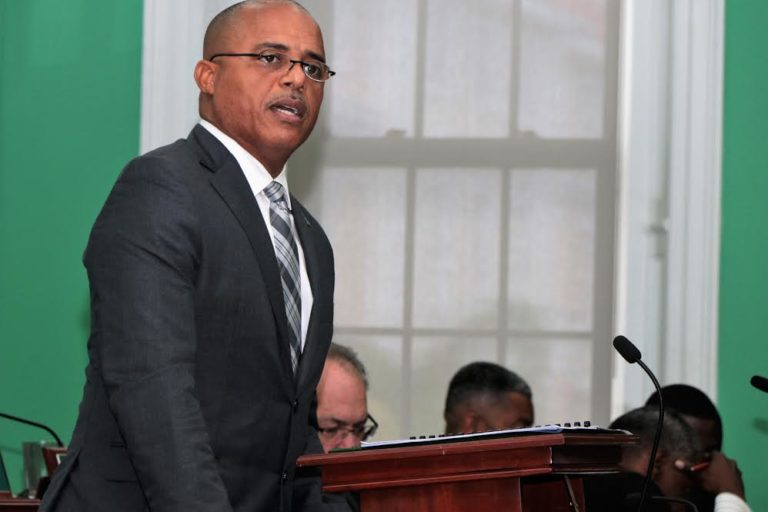National Secuitry Minister Marvin Dames called the Interception of Communications Bill 2017 a comprehensive contemporary law to fight “sophisticated technologically savvy criminals and dismantle their criminal networks”.
He said it is not a spy bill.
“From the outset, let me dispel this ridiculousness of the Interception of Communications Bill being referred to as a ‘spy bill’. For all within hearing distance of my voice, it is not and I will explain in my contribution,” Dames said in the House of Assembly (HOA).
“The word ‘spy’ connotes breaking the law and impinging upon the constitutional rights of an individual. The mere fact that we are in honourable House debating this very important bill, represents an urgent need to send a clear message that this government is committed to adhering to the Constitution of the Commonwealth of The Bahamas and the rule of law, and in no case assuming the posture of politics, of disrespect and arrogance.”
Dames also pointed out that a responsible government does not come to Parliament to inform its citizens and pass legislation, only to ignore the very legislation it was responsible for bringing to the floor.
“This does not make sense,” he stated. “The entire absurdity of the Interception of Communication Bill being referred to as a ‘spy bill’ needs to be put to a perpetual rest.”
Dames called the bill timely and pertinent to The Bahamas’ national security and well-being as a nation.
He added that the primary goal of the bill was to thwart any and all national security threats to Bahamian citizens, residents and visitors.
“This bill is a vital tool to assist in our crime fighting strategies, particularly in combating drug, human, and gun trafficking, gang violence, cyber-crimes and other forms of transnational organised crimes,” Dames said.
“Without legislation such as this one, law enforcement agencies will be severely handicapped and disadvantaged in their attempts to detect, collect, analyse, investigate and prosecute associated crimes in a world where technology related platforms have become the preferred means of communications across the globe, especially for organised crime organisations.
“Therefore, the question we must now ask ourselves, ‘Who do we prefer to have the upper hand? Organised crime groups or the men and women in law enforcement who have taken an oath to protect us all?’”
Minister Dames noted that the Bill sought to provide a single legal framework, within which, the interception of all communications on public and private systems would be authorized inclusive of public telecommunication operators and Internet providers.
The bill, he added, provides for the interception of communication carried wholly or partly by wireless telegraphy and also covers all mail handling systems including parcel and courier services.


